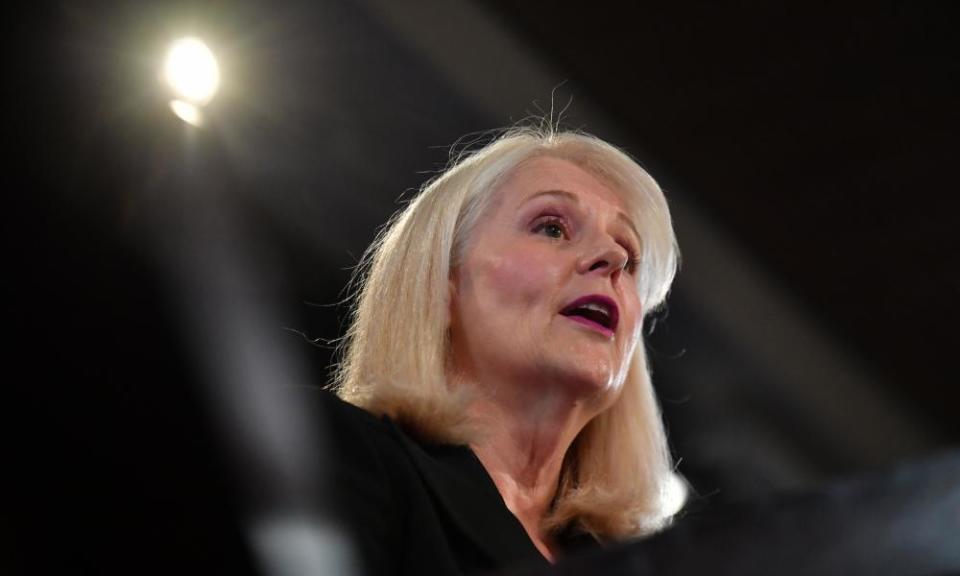Australian production of non-protein Covid-19 vaccine may take an extra year, minister says

It could take up to a year for Australian biotech company CSL to develop the capability to make a Covid-19 vaccine if a non-protein-based version proves safe and effective, the country’s industry minister has said.
Karen Andrews said CSL would be able to immediately start making a protein-based vaccine, but “significant work” would be required if it was another type based on mRNA, or messenger ribonucleic acid.
Vaccines traditionally introduce proteins into the body to provoke the immunity system into responding but if an mRNA vaccine of the kind being developed by US company Moderna is approved it would be the first of its type, experts say.
During an interview with the ABC’s Insiders program on Sunday, Andrews was pressed to give a timeframe to get production up and running in Australia if an mRNA vaccine was approved.
“I would hope that we would be able to do it in about the nine-month to 12-month timeframe,” she said.
“But I think we need to be really conscious that with a vaccine, there are a lot of variables in there. So we don’t have the vaccine proven at this point in time, we don’t know what the base for that vaccine is going to be, so we are trying to prepare across a wide range.”
Andrews said the government would give support to CSL to help it ramp up its capability and roll out technical upgrades – with some of that work already under way.
The rollout of a successful vaccine has implications for opening international borders and restoring a sense of normality to social and economic activity in Australia.
The federal budget, released earlier this month, assumed that a population-wide Australian Covid-19 vaccination program would be “fully in place by late 2021”, with social distancing restrictions continuing until a vaccine was available.
The health minister, Greg Hunt, moved to assure people later on Sunday that Australia was “very strongly placed” when it came to securing access to and producing vaccines.
“We in a strong position, we’re progressing, there’s never a guarantee – but what we know is that we’ve been exceptionally cautious in relation to vaccines and each day the evidence is stronger and the proximity to distribution of that treatment is closer,” Hunt told reporters in Canberra.
Hunt said Andrews had been asked a hypothetical question about non-protein vaccines and was “absolutely right that some of the mRNA ones will take longer”.
But he said the protein-based vaccine candidate being developed by AstraZeneca and the University of Oxford remained “on track for first quarter [2021] commencement and significant rollout during the course of the year [2021]”.
Related: Australian government announces Covid vaccine deals to provide 84.8m doses
“So our timeframes are unchanged. On the hypothetical if there were no protein-based vaccine, Minister Andrews was 100% correct. But when you take away that hypothetical, when we look at the board reality, Australia is on track for first quarter commencement of that rollout.”
Hunt said Australia had reached a deal to access 33.8m units of the Oxford and AstraZeneca vaccine, including 3.8m units brought in from overseas in early 2021, subject to approvals in the UK and Australia. He said Australian manufacturing would able to commence and be well under way in the first quarter of 2021.
Hunt said CSL was also aiming to make sure that the vaccine developed by the University of Queensland was “available during the course of next year – about the middle of the year”. He said there were contracts for 51m units of the UQ vaccine to be manufactured in Australia throughout 2021.
He said the government was also “highly advanced” in investigating other vaccine candidates, and had joined the Covax international buying facility.

 Yahoo News
Yahoo News 